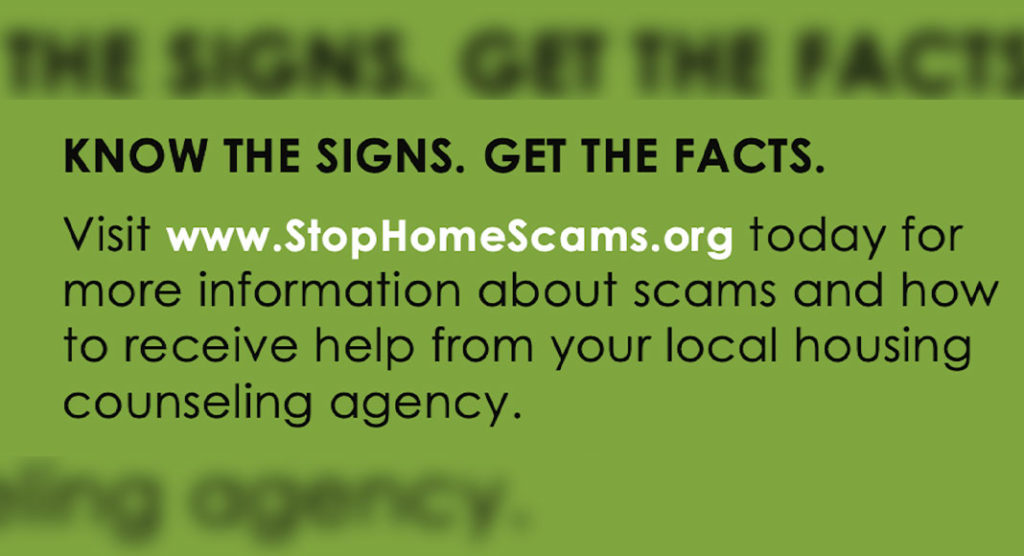
Texas Border Business
A growing wave of scam activity is targeting homeowners and renters alike. Facing the unprecedented impact of the COVID-19 pandemic, homeowners and renters are navigating financial and legal stressors regarding their housing. Scam artists are openly taking advantage of people in difficult circumstances – online, on the phone and even in person at their front doors.
We are proud to partner with NeighborWorks America as they help homeowners and renters protect their homes and communities from scams.
Mortgage and rental scams aren’t always easy to see. That’s why it’s important to know the warning signs and stay alert. Below are five red flags that indicate you may be dealing with a scammer.
- A company/person asks for a fee in advance
Don’t pay for a service before you receive it. It is illegal for a company/individual to charge fees in advance for mortgage assistance services. Note: Attorneys are allowed to charge fees in advance if they meet certain requirements and place fees in a client trust account.
- A company/person promises they can stop a foreclosure or eviction: Nobody can make this guarantee. Scammers use fear and the promise of security to trick people in need. Legitimate, trust-worthy HUD-approved counseling agencies will only promise they will try their very best to help you.
- A company/person advises you to stop paying your mortgage lender or landlord and pay them instead: Despite what a scammer will tell you, you should never send a payment to anyone other than your mortgage company or landlord. The minute you have trouble making your monthly payment, contact your lender, landlord or a HUD-approved housing counselor.
- A company/person claims to be a part of a reputable agency: Ask for credentials and research the organization and phone number, checking for bad reviews or claims of scams. Scammers often pose as “government-approved” or an “official government” service. If you can’t confirm the identity of who you are talking to, contact your landlord or mortgage company, or find a local HUD-approved counseling agency.
- A company/person asks for identifiable, personal or financial information: Your information is your greatest value and security. Scammers may pressure you to sign off on something quickly. Never give out your address, deed, billing info, social security number, bank account or related information.

Know the signs. Get the facts.
Visit www.stophomescams.org today for more information about scams and how to receive help from your local housing counseling agency.












